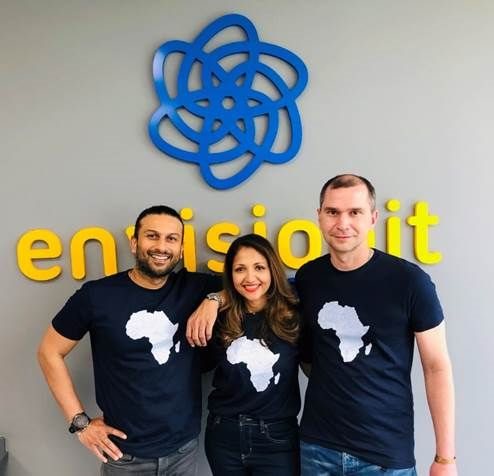
Top stories






More news


Marketing & Media
Ads are coming to AI. Does that really have to be such a bad thing?














The investment by New GX Ventures SA into Envisionit Deep AI follows the startup being named the Best Newcomer at the Southern Africa regional finale of the African Startup Awards. In doing so, the company secured an additional undisclosed amount in seed funding from the GIIG Africa Fund, the exclusive investment partner to the African Startup Awards, with the mission to find, fund and scale solutions with the potential to achieve the Sustainable Development Goals in Africa.
According to Khudusela Pitje, the founder of New GX Ventures SA, these investments will play an integral role in Envisionit Deep AI’s next stage of growth by financing research and development into new solutions for early diagnosis in the medical field.
At the same time, they will support the company’s efforts to widen its reach in the African market, ahead of securing Conformite Europeenne (CE) and Food and Drug Administration (FDA) authorisation to expand into Europe and the United States.
Founded in 2019 by Dr Jaishree Naidoo, Andrei Migatchev and Terence Naidu – Envisionit Deep AI builds medical solutions that harness the power of AI to transform how healthcare professionals diagnose and treat patients.
Through solutions such as its Radify AI technology, the company is improving the speed, accuracy, quality and affordability of medical imaging diagnosis, which is crucial in the early detection and treatment of various diseases including tuberculosis, coronavirus pneumonia and breast cancer, among others.
In doing so, Envisionit Deep AI is helping to solve critical staffing and resource shortages mainly in public healthcare systems and under-serviced communities across Africa, where investment into the sector is amongst the lowest globally.
“Our mission is to change that,” explains Dr Naidoo. “There is a huge demand for healthcare services in Africa, particularly in the field of medical diagnostics. In 2022 alone, we screened and triaged 64,351 patients, including 44,529 cases of pneumonia, 1,635 cases of tuberculosis, and a further 127,151 pathologies. However, this is just scratching the surface – the current system just isn’t able to address the massive need and demand.”